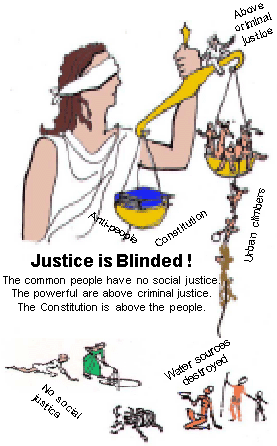|
Local Control over
Water resources
SK Sharma Since time immemorial till about 150 years ago, local communities in India controlled local resources including water and managed and conserved them in a sustainable manner. The Muslim rule found the arrangement convenient and largely did not disturb it, nor did the East India Company, being primarily a trading house. Sir Charles Metcalfe, then Governor General under the East India Company, in his famous minute recorded in 1932 observed : "The village communities in India are little republics, having nearly everything they want within themselves, each one forming a separate state in itself. They have contributed to the preservation of the people, through all the revolutions and changes they have suffered, and to their happiness and enjoyment of independence. I dread everything that has a tendency to break them up". Bharat’s village democracy was thus not dislodged by the Muslim rule though a few rulers did impose special taxes on Hindus. Some Governor General of the East India Company such as Warren Hasting tried to dislodge it. They were impeached by the British crown. It was thus alive and vibrant till the advent of the British rule. After India lost its first war of independence in 1857, British imperialism assumed power and brought all local resources including water under its control through the district bureaucracy and deprived local communities of their traditional rights. 1. Centralised control after Independence
Sadly, the then political leadership, ingoring Gandhi, perpetuated such centralised control over local resources after independence. In 55 years, it led to all round social, environmental, economic and political degradation witnessed today. Our population has grown from 320 to 1000 million! Our forest cover has gone down from 75 to 32 million hectares while wasteland has increased from 48 to 130 million hectares. Over 400 million people in 2,27,000 villages do not have adequate safe drinking water. Illiteracy has increased from 240 to 420 million, unemployment from 40 to 290 million. Malnutrition may make our children below the poverty line virtual morons! Criminalisation of politics and politicising of crime are ugly realities. Reservations have fostered vote bank politics, further dividing communities. Violent movements are pervasive, corruption endemic. Most states are facing bankruptcy. Most educated civil society is shamelessly abetting such destruction of India. It has little concern for our poor, other live forms, forests and water systems. It is insensitive even to starvation deaths —- a disgrace in democracy. Our political system based on exploitative colonial institutions is fostering devilish attitudes in all of us. Dedicated social workers such as Anna Sahib Hazare have forcefully demonstrated that communities can, if given control over local resources, effectively regenerate water systems and the rural economy. Such projects can be replicated on a wide scale only if local communities have statutory control over their local resources without interference from higher level politics. Thus state programmes such as constructing water conservation structures and joint forestry management are largely ineffective as they do not provide for effective control by local communities. 2. Panchayati Raj The panchayati raj amendments brought in with great fanfare retain effective power with the state and its district bureaucracy and have only decentralised corruption. The sarpanch elected through the state election commission for five years is dependent on the legislators and state bureaucracy for funds and connives with them to abuse authority. He is hardly accountable to the local community. We need true local empowerment in which the village parliament consisting of all adult men and women is the supreme authority. It elects the sarpanch and panchs through secret ballot for one year and can remove them any time for misconduct. Such local empowerment advocated by Gandhi as Gram Swaraj is practised in the best democracies such as the Swiss. 3. Basic Political Problem Unless this basic political problem is resolved, the ongoing degeneration of our environment, especially water systems, cannot be averted. While the political system does lip service to local control over water systems, it tries to divert attention of the nation from its failures by making preposterous announcements of linking major rivers that apart from phenomenal costs, can lead to serious adverse environmental fallouts. We have inflicted enough damage to our water systems and the rural economy. The time has come when we should do serious introspection and rededicate the nation to Gandhi and his Gram Swaraj. q
Managing Trustees: Ashok Khosla, SK Sharma B-32, Qutab Inst. Area, New Delhi 110 016;Tel: 91(11) 2696-7938; Fax: 2686-6031; Email: people@sdalt.ernet.in
Website:
www.peoplefirstindia.org
|

